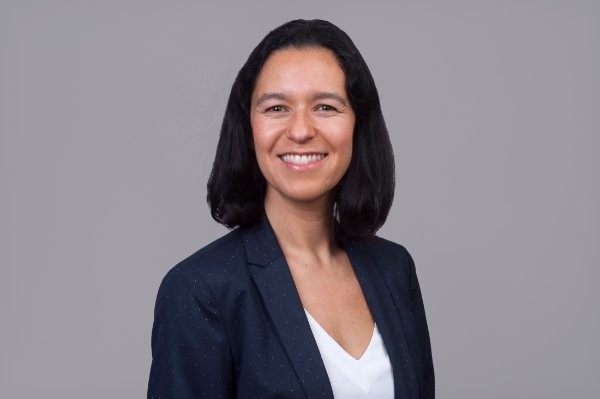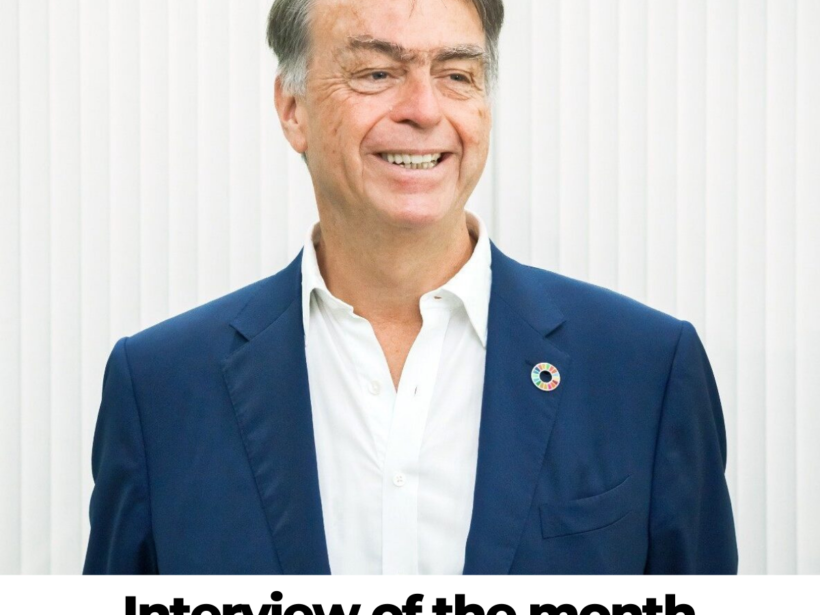
Meet GLIS’ New Vice President – Sarah Djari
Sarah Djari was announced as the new Vice President of the Gender Lens Initiative for Switzerland at our Women’s Day webinar on March 8, 2022. Sarah is an accomplished impact investor with practical experience in applying a gender lens to financial product creation. SFG is thrilled to have her on board and asked her a few questions so our community can get to know her better.
Can you introduce yourself and tell us a little bit about your career in the finance industry?
My name is Sarah Djari and I am a Private Equity Principal at responsAbility Investments, focusing on financial services and fintech in Emerging Markets. I came to finance when I realized that being excluded from financial systems is a real obstacle to achieving well-being & uplifting low-income households. Financial exclusion also impedes MSMEs’ growth & job creation. After a few years in the Private Equity (PE) & Telco teams of Bain&Co, I moved to India to develop the country’s largest private bank’s microfinance program. I was very lucky to be surrounded by colleagues truly motivated to power micro & SME finance for the financially excluded. Having this new perspective, I decided to move toward channeling international private capital to emerging markets: this is how I started my PE Impact Investment career in Emerging Markets. I am now been investing in global emerging markets in innovative companies furthering the financial inclusion and gender equality agendas.
When and how did the topic of gender first come onto your radar at work?
When volunteering with “Engineers without borders” in Chad as a student, I saw firsthand how women of low-income families are making daily financial decisions for the family and how they naturally integrate a mid-term perspective to prioritize & invest in the well-being of their children over their own.
Why do you consider embedding gender equality in the financial industry important?
There are so many reasons – women tend to think about the family unit first; women are disproportionally excluded from the financial system as well as healthcare & education; women & girls are the primary managers of water & energy. Ensuring women’s participation benefits whole families and communities.
Just to give a few numbers to illustrate my point further, globally, ~31% or 1.7 Billion adults do not have a bank or mobile money account, of these, 1Bn are women. Approximately 80% or 280-340 Million MSMEs in emerging markets are informal and can’t grow because they are excluded from the financial system. They are critical to local economies, employ 80% of the workforce, and a large portion are run by women.
In addition, the COVID-19 pandemic has had a regressive effect on gender equality and has exacerbated existing inequalities in economic outcomes between men and women.
Women accounted for 54% of overall job losses during the pandemic even though they make up only 39% of global employment (McKinsey Global Institute, July 2020). Women’s jobs were, thus, 1.8 times more vulnerable compared to men’s jobs during the pandemic. Women already had lower levels of access to land, financial capital, and social security globally & the pandemic widened these gaps by hitting industries where women were particularly represented such as food services, retail, hospitality, and entertainment. Combine this with women’s disproportionate levels of unpaid care work for children and elders and it is easy to understand why more women drop out of the workforce.
Closer to home, studies focusing on gender equality globally have shown that while women amount to half of the students enrolled in tertiary education in finance, banking, and insurance, they only represent 17% of top management in the Swiss financial industry. Generally, employees perceive bigger gender gaps in the organizational culture of Swiss companies than in European ones. This unsatisfactory performance is confirmed by a 2021 study by the European Women on Board (EWOB), ranking Switzerland very low compared to other European countries: « In all, 53 Swiss firms were assessed. Switzerland has the third-lowest percentage of women on committees and the second-lowest score for female CEOs. Female chief executive officers were employed in only 2% of the Swiss companies surveyed». On average, women hold only 14% of executive-level positions and 33% of middle management roles in SMI companies where they represent 38% of the workforce.
How can we expect to achieve our full economic potential as a society if we are systematically excluding 50% of the population? This is why we need to consider gender in our investment decision-making and in how we do business more generally.
What made you interested in joining the GLIS as Vice President?
Gender smart investing is a growing asset class with a compelling business case that can help close the gap on women’s economic opportunities. Switzerland, being such a powerful center for Finance and SDGs, is an obvious place to improve coordination, interest, and action for this approach. Most importantly, I believe we have everything it takes to develop investment strategies & solutions supporting gender focus investment that can positively contribute to the global advancement of the cause. I want to be part of a team that is pushing the agenda and supporting decision-makers to act further.
What do you hope to achieve through your involvement in the GLIS?
I am a quantitative person, and I like that GLI uses gender-disaggregated data and metrics to advance the issues I spoke about earlier. I, therefore, think I’ll be spending most of my time on the GLIS’ work on standards and labels. I also hope we can identify and develop new, investable solutions and products; and of course, help to educate the broader community on gender issues and the potential of GLI.




